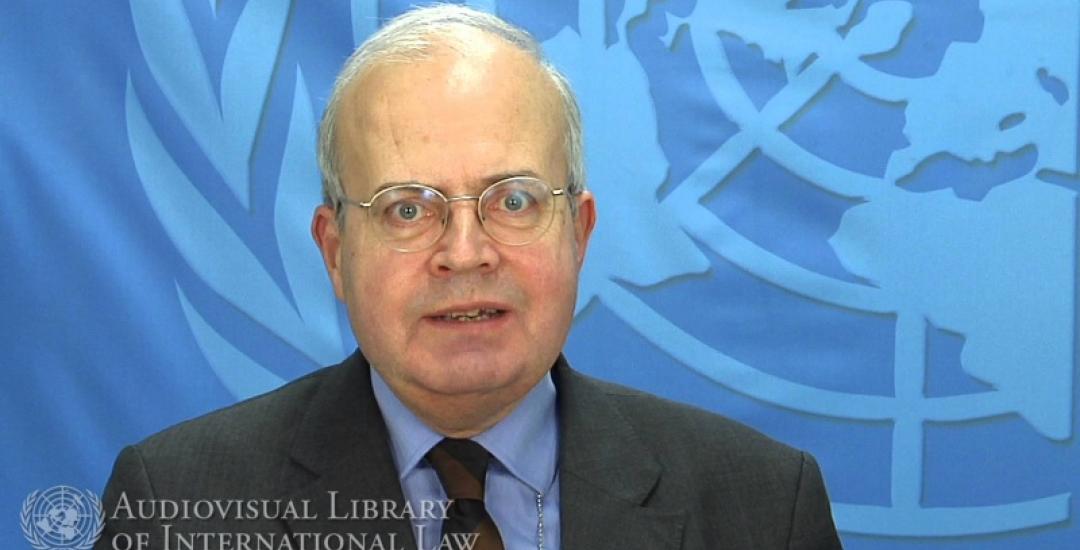
In its latest shadow report on the widespread practice of enforced disappearances in Iraq, Alkarama identifies alarming patterns – in particular the widespread use of secret detention and the abductions committed by government-backed militias – and formulated 14 key recommendations to the authorities to tackle the issue. The report was submitted on 14 August 2015 to the UN Committee on Enforced Disappearances (CED) in view of the country's review during its upcoming 9th session on 7 and 8 September 2015.
The Committee's 10 independent experts will then assess the compliance of Iraq with their obligations under the International Convention for the Protection of All Persons from Enforced Disappearance (ICPPED), based on information submitted by non-governmental organisations, including Alkarama, and the country's national report. Alkarama believes the government's report merely cites the country's domestic legislation and is concerned that it only refers to the practice of enforced disappearances as being "widely used by the dictatorial regime which ruled Iraq from 1968 to 2003," thus denying that this practice continues to occur to this day – especially under the pretext of the "fight against terrorism" and the Islamic State –, as widely documented.
Lack of a definition and non criminalisation of the crime of enforced disappearance
In its shadow report, Alkarama denounced the absence of a definition of enforced disappearance in Iraqi law, which contravenes article 2 of the Convention. Although the government is arguing that it will soon adopt legislation on the matter, it also notes that "it will take some time for such legislation to be approved," which leaves doubts as to the real political will to tackle the issue of enforced disappearance.
Moreover, the practice itself is not criminalised – in violation of article 4 ICCPED – as such and Iraq refers instead to "offences that would constitute enforced disappearances" such as "unlawful detention" or "abduction." However, such offences do take into account the two most essential aspects of an enforced disappearance, namely the "refusal to acknowledge the deprivation of liberty" and its application to not only state officials but also persons "acting with the authorisation, support or acquiescence of the State" – such as state-controlled militias – as required by the Convention.
The widespread use of incommunicado and secret detention
Alkarama also identified the violation of arrestees and detainees' fundamental legal safeguards – in particular the arrests without any warrants, extended periods of custody, the denial of communication of the detainee with his family or counsel and the absence of updates registers in places of detention – as conducive to incommunicado detention.
Moreover, Alkarama denounced the existence of secret detention facilities in the country, in blatant violation of article 17 of the Convention. One of the most notorious detention centres is located in the old Al Muthanna military airport in West Baghdad and is run jointly by the 54th and 56th Brigades of the army which report to the Office of the Prime Minister. Although after the facility was exposed in 2010 the authorities announced they would close it, it still continues to hold hundreds of individuals, most of whom have been severely tortured in order to force them to confess to a crime they did not commit, such as Riad Al Obeidi and Mohammed Al Sudani, who was electrocuted and sexually abused while secretly detained.
Abductions by government-backed militias
Lastly, Alkarama expressed concern over enforced disappearances committed by government-backed militias which have long been operating in the country like regular armed forces with the support of the authorities. Since June 2014 and the fight against the Islamic State, militias have considerably increased their power and legitimacy, particularly since the creation by the Ministry of Interior of a state-sponsored umbrella organisation composed of about 40 militias called the "People's Mobilisation" or "al-Hashd al-Shaabi" led by Hadi al-Amiri, former Minister of Transport and commander of the Badr Brigades.
These militias have long taken advantage of the climate of lawlessness and impunity prevailing in the country to commit serious human rights abuses, including abductions, torture and summary executions. Alkarama brought to the Committee on Enforced Disappearances' attention the cases of Abbas Al Batawi and Mohammed Al Aseymi, who are both disappeared since 2006 following their abductions by state-sponsored militias. Both were seen on television during the visit of former Vice-President Tariq Al Hashimi; Al Batawi in Al Rusafa Prison in 2007 and Al Aseymi in Tasferat prison in 2011, showing how militias operate with the tacit consent or under the direct control of the government, conducting abductions of individuals before transferring them to official detention facilities.
Alkarama calls upon Iraq to put a definitive end to the practice of enforced disappearance
The issues mentioned above are just a few of the many concerns Alkarama shared with regards to the practice of enforced disappearances in Iraq – for more, read Alkarama's shadow report – but must, at the same time, be address as a matter of priority.
If the authorities are really willing to put a definitive end to this practice, as it had manifested its intention when it accessed the International Convention for the Protection of All Persons from Enforced Disappearance (ICPPED) in 2010, it should, among others:
• Define and criminalise enforced disappearance;
• Explicitly prohibit secret and incommunicado detention and close all secret detention centers still existing in the country;
• Investigate all acts of disappearances, including those committed by militias, and take the necessary measures to disarm such groups.
Alkarama hopes that the concerns raised in its shadow report will be addressed constructively during the dialogue between the Committee on Enforced Disappearances and the representatives of the State Party – which will be held on 7 and 8 September and can be watch live on the Treaty Body webcast – in order to put an end to enforced disappearances and other violations of human dignity.
For more information or an interview, please contact the media team at media@alkarama.org (Dir: +41 22 734 1008).
